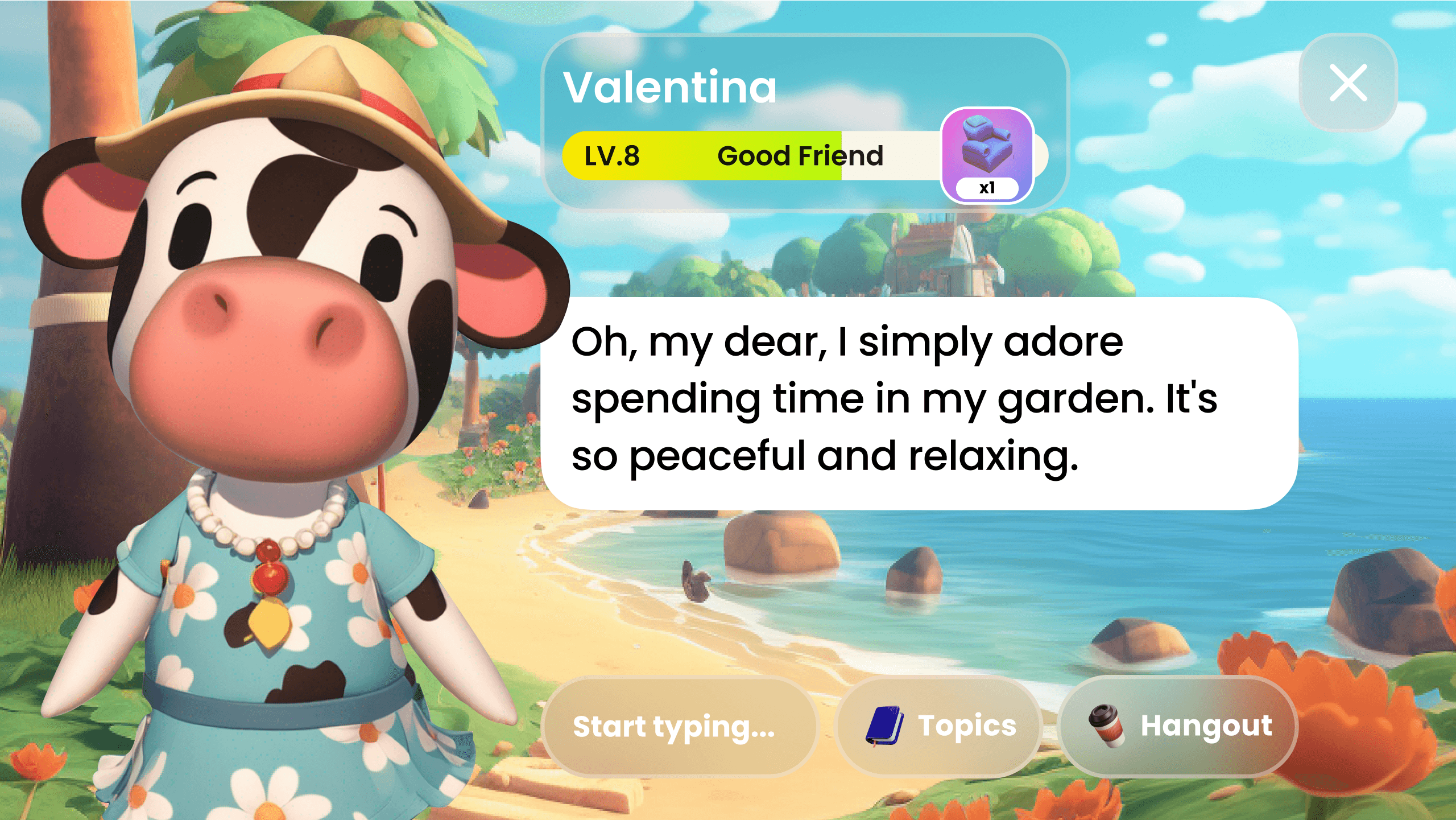AI Revolution in Gaming: The Future of Interactive Entertainment
Nov 15, 2023

Introduction
The gaming industry, a dynamic and ever-evolving sector, stands on the cusp of a new revolution powered by Artificial Intelligence (AI). This blog post explores how AI, particularly Large Language Models (LLMs), is reshaping game design and user experience. We'll delve into the transformative impact of AI on NPC dialogues, environment generation, 2D surface creation, and ongoing content development, heralding a new era in gaming.
AI-Powered NPC Dialogues: A New Level of Interaction
The Rise of Conversational NPCs
Traditionally, Non-Playable Characters (NPCs) in games have been limited by pre-scripted dialogues. AI, especially LLMs, is changing this by enabling NPCs to engage in dynamic, context-aware conversations. This leap in NPC interactivity enhances the realism and depth of games, offering players a more immersive and responsive experience.
Tailored Experiences and Enhanced Storytelling
AI-driven NPCs can adapt their dialogues based on players' actions and preferences, creating personalized gaming narratives. This adaptability not only makes each playthrough unique but also elevates storytelling, allowing for more nuanced and emotionally resonant interactions.
Campfire: Cozy AI Villagers - A Trailblazer in AI-Driven Games
A New Kind of Cozy Game
"Campfire: Cozy AI Villagers" is a shining example of a game that leverages AI to revolutionize player interactions. This cozy game is built around AI villagers who players can converse with about anything. These AI characters serve as virtual friends, allowing players to build and develop relationships through open-ended chat experiences. The game's innovative use of AI in creating these interactive and engaging NPCs offers a glimpse into the future of gaming, where digital companionship and emotional connections become central elements.

Breaking New Ground in NPC Interaction
Campfire's AI-powered NPCs set a new standard in gaming. They react and evolve based on the player's interaction, making each encounter unique. This level of personalized interaction creates a sense of genuine connection and companionship, elevating the game beyond traditional gaming experiences.
Transforming Game Environments with AI
Procedural Generation: Infinite Worlds at Your Fingertips
AI has a significant role in environment generation, particularly through procedural generation techniques. This method uses algorithms to create vast, intricate worlds, offering endless exploration possibilities. AI-driven procedural generation can generate not just landscapes but also intricate cityscapes, realistic ecosystems, and culturally diverse settings, each with its own unique charm.
Enhancing Realism and Detail
AI can analyze real-world data to create game environments that are breathtakingly realistic. By learning from geological, architectural, and environmental data, AI algorithms can produce settings that are detailed, dynamic, and deeply immersive.
The Revolution in 2D Surface Generation
Bringing Art to Life
AI is not just transforming 3D environments but also revolutionizing 2D surface generation. From character design to textures, AI tools can create detailed and unique art assets, reducing the time and effort required in the traditional design process. This capability allows for a more diverse range of visual styles and artistic expressions in games.
Ongoing Content Generation: Keeping Games Fresh
Dynamic and Ever-Evolving Gameplay
The use of AI in ongoing content generation ensures that games remain engaging long after their release. AI can create new challenges, quests, and scenarios, keeping the gameplay experience fresh and exciting. This aspect is particularly valuable in open-world and multiplayer games, where new content is crucial for retaining player interest.
Personalized Gaming Experiences
AI algorithms can analyze player behavior and preferences to tailor content accordingly. This customization means that games can evolve in response to how they are played, providing a truly personalized gaming experience.
Conclusion
The integration of AI in the gaming industry is not just an incremental change but a paradigm shift. By revolutionizing NPC dialogues, environment generation, 2D surface creation, and ongoing content development, AI is setting the stage for an era where games are more immersive, dynamic, and personalized than ever before. With games like "Campfire: Cozy AI Villagers" leading the way, it's clear that AI will continue to redefine the boundaries of what's possible in gaming, offering players experiences that are currently beyond our wildest imaginations.